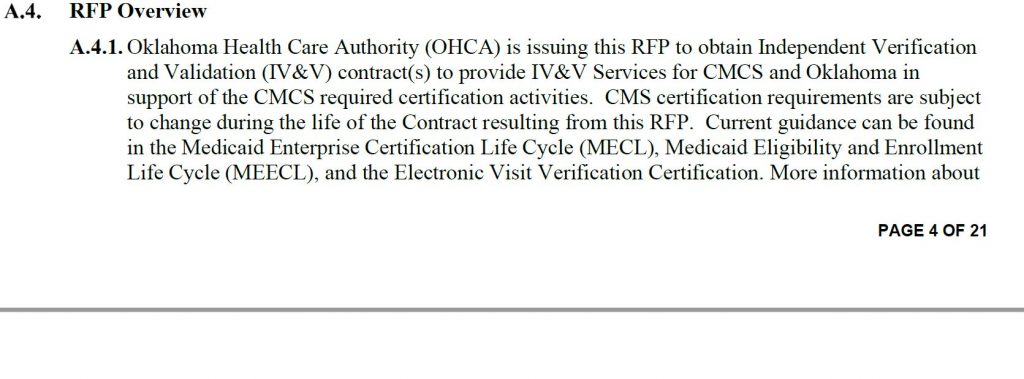MM Curator summary
Lawmakers do the normal “big bad managed care” dance on the eve of managed care coming to Oklahoma.
The article below has been highlighted and summarized by our research team. It is provided here for member convenience as part of our Curator service.
OKLAHOMA CITY (KFOR) – Oklahoma lawmakers are duking it out over plans to move Medicaid patients to managed care contractors. On Thursday, a group of Republican state senators joined ranks with those who oppose the change.
As the state heads toward expanding Medicaid, Gov. Kevin Stitt is seeking a managed care contractor who will take on those new patients and others.
OKDHS announces retroactive rate adjustment for Medicaid waiver providers
But on Thursday, State Sen. George Burns and eight other state senators sent him a letter urging him to change course. The letter pointed out that the move won’t save the state money, and that those Sen. Burns knows who are familiar with managed care companies said they only benefit out-of-state insurance companies and their stockholders.
Their objections fall in line with those of several state healthcare associations who point out that while the current Medicaid program run through the Oklahoma Health Care Association works with about 3 percent overhead, a managed care company requires something closer to 12-15-percent for administrative costs.
But a different Republican lawmaker, State Sen. Kim David, is a big believer in making the change.
“We’re 48th in the nation and we have been forever,” she said. “Forty-eighth in the nation for healthcare outcomes.”
After years of researching solutions to Oklahoma health outcome issue, she said she’s confident managed care will provide something our current healthcare system lacks: hands-on help to navigate healthcare for Oklahomans.
“[Someone who] helps people get those appointments with those primary care providers, make those appointments, make sure they have a ride to the doctor, make sure they get prescriptions filled,” she said.
Sen. David insists this will improve patient outcomes.
As for the money issue, she said that’s not where the focus should be.
“Money does not equate health outcomes,” Sen. David said. “What they like is they like the fact that we pay in two weeks.”
Dr. Mary Clarke with the Oklahoma State Medical Association agrees that managed care does typically reimburse providers more slowly, sometimes taking several months to pay a doctor for their care.
“We may not get paid for months and that’s hard to keep the small rural practices open,” Dr. Clarke said.
Medicaid expansion leads to battle over TSET funds in SQ 814
She argued that not only did managed care not work in Oklahoma in the 1990s, but that the higher cost of the care will result in patient claims being denied.
“It’s easy to think this is going to save money and improve quality, but we have lots of historical research that will show that it does not. Trying it again is not going to come out with a different outcome,” Dr. Clarke said.
The OHCA also advocates for making the move to managed care.
Gov. Stitt was not available for an interview, but sent KFOR the following statement Thursday:
“Our state is stuck near the bottom of the list in almost every major health outcome. Oklahomans hired me to bring a fresh set of eyes to all areas of state government, and as governor, I can’t stand by and continue with business as usual when the system isn’t working. Moving to a managed care model will deliver better health care for Oklahomans and provide the cost certainty needed to protect our investment in other priorities like education and transportation.”
GOV. KEVIN STITT
Clipped from: https://kfor.com/news/local/state-senators-argue-over-plans-to-move-medicaid-onto-managed-care-contractors/





